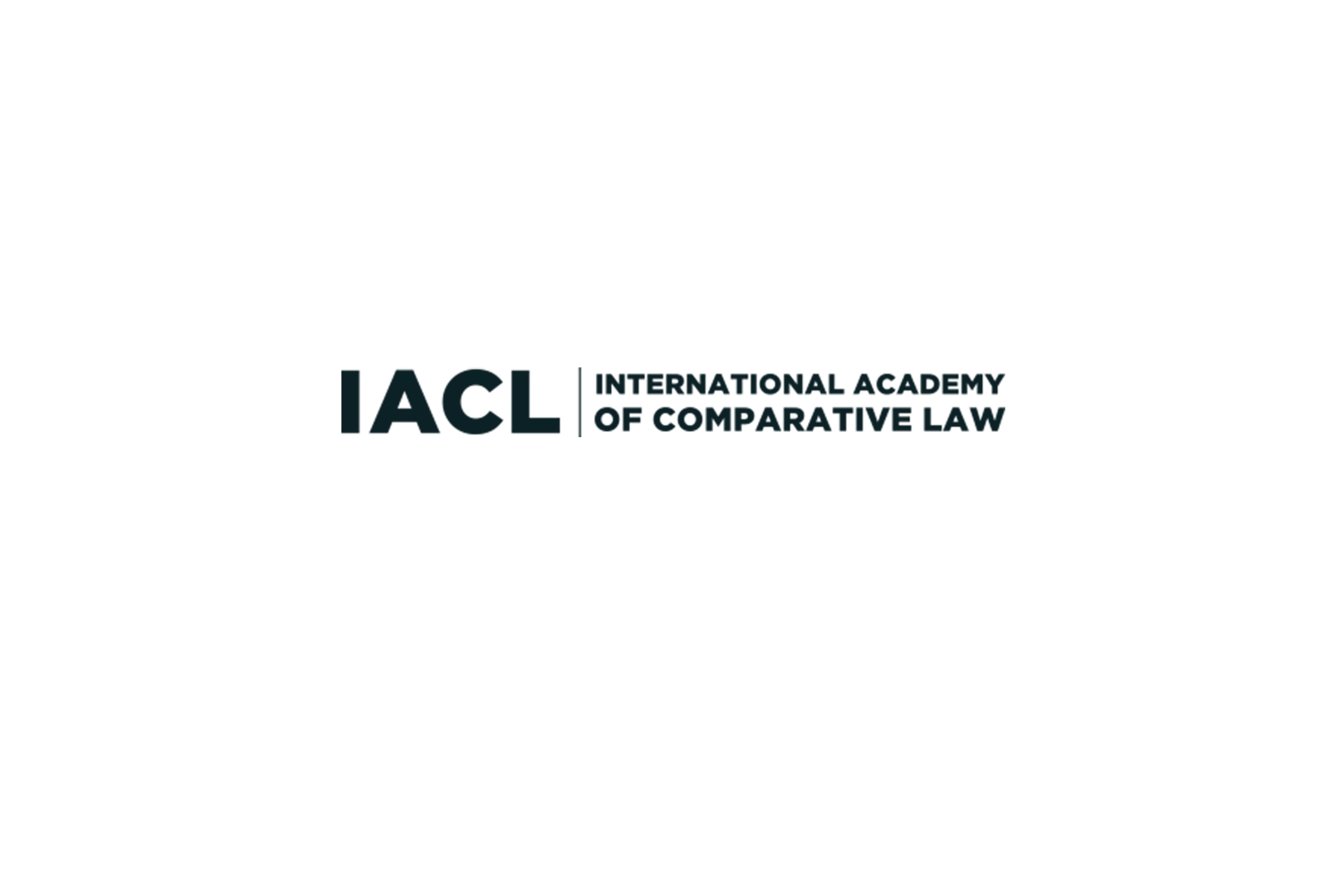HUK 207 | Course Introduction and Application Information
| Course Name |
International Public Law
|
|
Code
|
Semester
|
Theory
(hour/week) |
Application/Lab
(hour/week) |
Local Credits
|
ECTS
|
|
HUK 207
|
Fall
|
3
|
0
|
3
|
4
|
| Prerequisites |
None
|
|||||
| Course Language |
Turkish
|
|||||
| Course Type |
Required
|
|||||
| Course Level |
First Cycle
|
|||||
| Mode of Delivery | - | |||||
| Teaching Methods and Techniques of the Course | DiscussionProblem SolvingQ&ALecture / Presentation | |||||
| National Occupation Classification | - | |||||
| Course Coordinator | ||||||
| Course Lecturer(s) | ||||||
| Assistant(s) | ||||||
| Course Objectives | The aim of the course is to teach the main areas of public international law together with the basic knowledge of general international law. The objectives of the course include the general knowledge in different areas of international law; the ability to access sources of international law through research; and the ability to use the acquired knowledge in a functional way through practical exercises. The method of the course is to reinforce the knowledge through research, discussion and practical work. |
| Learning Outcomes |
The students who succeeded in this course;
|
| Course Description | The course aims to explain the constituent elements of the international legal order, taking into account the mutual influence relations between international legal persons, with current developments. The aim of approaching international law as a compulsory and complementary tool in the search for an accurate and comprehensive view of the complex events in international relations has been the determining factor in the adoption of the course plan and methodology. Therefore, although the general area of public international law constitutes the main content of the course, due to its complementary and complementary features, the main areas of public international law, each of which is a major area, are included in the course content of public international law. The sections of the course dealing with procedural law will be covered in the relevant chapters within the selected majors (existing dispute redress mechanisms - such as international judicial bodies and the conditions of recourse). Similarly, international organizations will be evaluated in the light of current developments by adhering to the reasons for their establishment (such as the United Nations - rules on disputes - rules on armed intervention). |
| Related Sustainable Development Goals |
|
|
Core Courses |
X
|
| Major Area Courses | ||
| Supportive Courses | ||
| Media and Management Skills Courses | ||
| Transferable Skill Courses |
WEEKLY SUBJECTS AND RELATED PREPARATION STUDIES
| Week | Subjects | Related Preparation |
| 1 | Basic concepts of International Law, order of international law, theories about international law (in the light of the Lotus case- Permanent Court of International Justice (“ The case of the S.S. «Lotus» ”), Series A, no. 9, 7 Sept. 1927). | Melda SUR; Giriş, “Tanım ve İçerik”, Uluslararası Hukukun Esasları, Gözden Geçirilmiş 16. Baskı (İstanbul: Beta Yayıncılık 2022) p. 1-15. |
| 2 | Sources of International Law/ Relationship between International Law and Domestic Law - Regional Law. | SUR; Chapter 1, “Uluslararası Hukukun Kaynakları”, p. 19-21. |
| 3 | Persons of International Law (State, International Community)/State Jurisdiction (Theories of Jurisdiction). | SUR; Chapter 2, Section 3, “Devletler”, pp. 112-128. |
| 4 | Law of Treaties ( Convention of Vienna-1969). | SUR; 1. Bölüm, “Uluslararası Hukukun Kaynakları”, p. 21-82. |
| 5 | The Concept of State (Recognition - Succession and Diplomatic and Consular Law)/International Organizations (United Nations and regional organizations - Council of Europe) | SUR; Chapter 2, Section 3, “Devletler”, p. 141-167. |
| 6 | International Courts (in the light of the International Court of Justice). | SUR; Chapter 2, Section 3, “Birleşmiş Milletler Örgütü”, p.207-211 |
| 7 | International Human Rights Law (European Convention on Human Rights, practies of European Court of Human Rights) | Articles 1-15, 34-35 of the European Convention on Human Rights, (http://www.echr.coe.int/Documents/Con vention_TUR.pdf); Review of the ECtHR case law database (HUDOC): http://hudoc.echr.coe.int/sites/eng/Pages /search.aspx# |
| 8 | Midterm | |
| 9 | International Responsibility of States. | SUR, 3. Chapter 2. Section, “Devletin Uluslararası Sorumluluğu”, s.283-296. |
| 10 | Peaceful Settlement of International Disputes (Diplomatic means, International arbitration). | SUR, 3. Chapter 4. Kesim, “Uluslararası Uyuşmazlıkların Çözümü”, p.332-342. |
| 11 | Use of Force in International Law (Charter of the United Nations) | SUR; 3. Chapter 3. Section, “Uluslararası Silahlı Çatışmalar”, p.299-305. |
| 12 | Use of Force in International Law (International Law and Armed Conflicts/ Rules of Humanitarian Law | SUR; 3. Chapter 3. Section, “Uluslararası Silahlı Çatışmalar”, p.299-305. |
| 13 | International Criminal Court -ICC/CPI (Rome Statute-1998) | SUR; 3. Chapter 3. Section, “Uluslararası Silahlı Çatışmalar”, p. 321- 329. |
| 14 | International Law of the Sea (United Nations Convention on the Law of the Sea 1982 - Territorial Waters/Continental Shelf/High Sea). | SUR; 4. Chapter 1. Section, “Uluslararası Deniz Hukuku”, p. 347-412. |
| 15 | Review of the semester | |
| 16 | Final Exam |
| Course Notes/Textbooks | Melda SUR; Uluslararası Hukukun Genel Esasları, Gözden Geçirilmiş 17. Baskı, Beta Yayıncılık, İstanbul 2024. ISBN: 9786052427583 |
|
| Suggested Readings/Materials |
|
EVALUATION SYSTEM
| Semester Activities | Number | Weigthing |
| Participation | ||
| Laboratory / Application | ||
| Field Work | ||
| Quizzes / Studio Critiques | ||
| Portfolio | ||
| Homework / Assignments | ||
| Presentation / Jury | ||
| Project | ||
| Seminar / Workshop | ||
| Oral Exams | ||
| Midterm |
1
|
40
|
| Final Exam |
1
|
60
|
| Total |
| Weighting of Semester Activities on the Final Grade |
1
|
40
|
| Weighting of End-of-Semester Activities on the Final Grade |
1
|
60
|
| Total |
ECTS / WORKLOAD TABLE
| Semester Activities | Number | Duration (Hours) | Workload |
|---|---|---|---|
| Theoretical Course Hours (Including exam week: 16 x total hours) |
16
|
3
|
48
|
| Laboratory / Application Hours (Including exam week: '.16.' x total hours) |
16
|
0
|
|
| Study Hours Out of Class |
16
|
2
|
32
|
| Field Work |
0
|
||
| Quizzes / Studio Critiques |
0
|
||
| Portfolio |
0
|
||
| Homework / Assignments |
0
|
||
| Presentation / Jury |
0
|
||
| Project |
0
|
||
| Seminar / Workshop |
0
|
||
| Oral Exam |
0
|
||
| Midterms |
1
|
15
|
15
|
| Final Exam |
1
|
25
|
25
|
| Total |
120
|
COURSE LEARNING OUTCOMES AND PROGRAM QUALIFICATIONS RELATIONSHIP
|
#
|
Program Competencies/Outcomes |
* Contribution Level
|
|||||
|
1
|
2
|
3
|
4
|
5
|
|||
| 1 |
To be able to possess the knowledge in legal terminology, concepts and principles. |
-
|
-
|
-
|
-
|
X
|
|
| 2 |
Solves the legal problems with an analytic and integral point of view. |
-
|
-
|
-
|
X
|
-
|
|
| 3 |
Evaluates the legal knowledge and abilities obtained with a critical approach. |
-
|
-
|
-
|
X
|
-
|
|
| 4 |
Evaluates the developments in legal theory and practice by monitoring local, international and interdisciplinary dimensions. |
-
|
-
|
-
|
-
|
X
|
|
| 5 |
Is conscious of social, professional and scientific principles of ethic behaviour. |
-
|
-
|
-
|
X
|
-
|
|
| 6 |
Takes responsibility in solving problems by creative and innovative thinking. |
-
|
-
|
-
|
X
|
-
|
|
| 7 |
Interprets the sources of law by ways of legal methodology. |
-
|
-
|
-
|
-
|
X
|
|
| 8 |
To be able to interpret the legal norms with a sense of justice respectful to human rights and in the light of principles of democratic, secular and social state of law. |
-
|
-
|
-
|
-
|
X
|
|
| 9 |
To be able to use the daily scientific sources and court judgments in the framework of life time learning approach. |
-
|
-
|
-
|
X
|
-
|
|
| 10 |
Informs the related persons and institutions about legal matters both verbally and in written. |
-
|
-
|
-
|
X
|
-
|
|
| 11 |
Monitors the daily legal information/court decisions and interacts with the colleagues in a foreign language (“European Language Portfolio Global Scale” Level B1). |
-
|
-
|
-
|
-
|
-
|
|
| 12 |
Uses the information and communication technology together with the computer programs in a level required by the area of law (“European Computer Driving Licence, Advanced Level”). |
-
|
-
|
-
|
-
|
-
|
|
*1 Lowest, 2 Low, 3 Average, 4 High, 5 Highest












